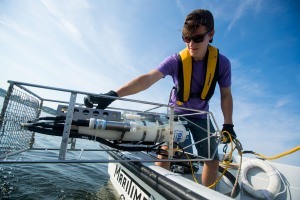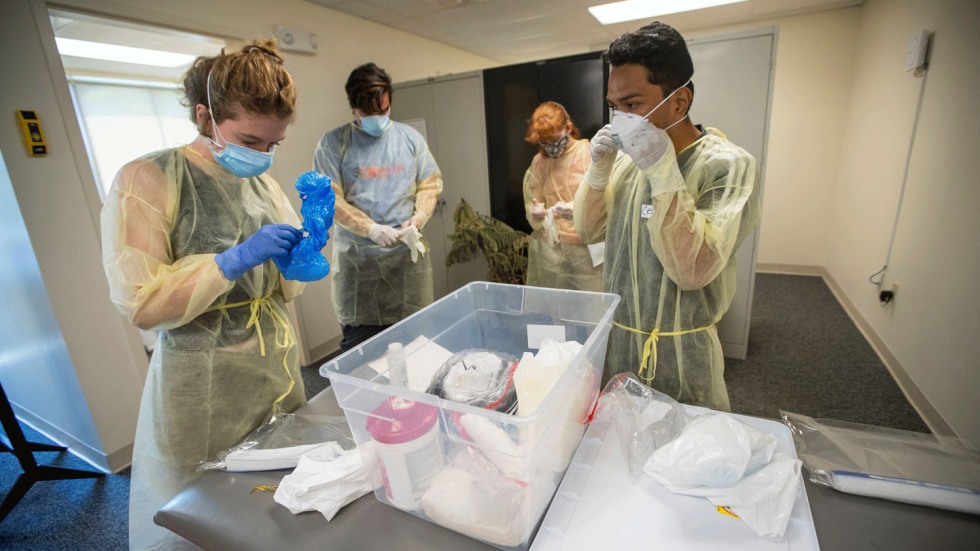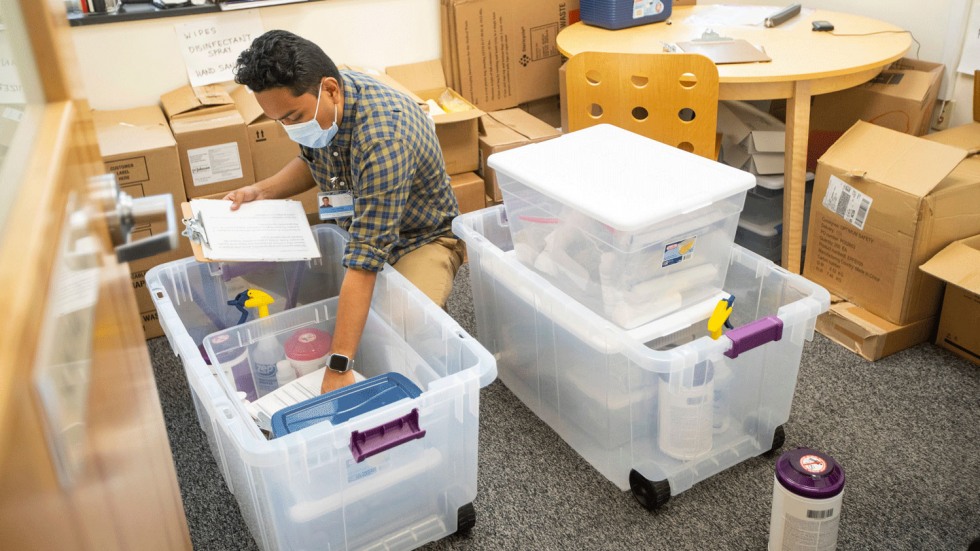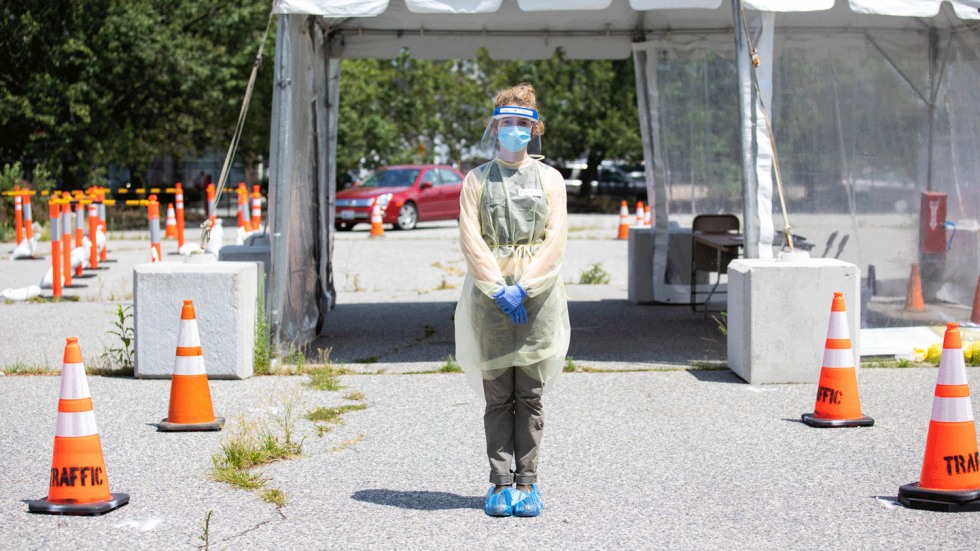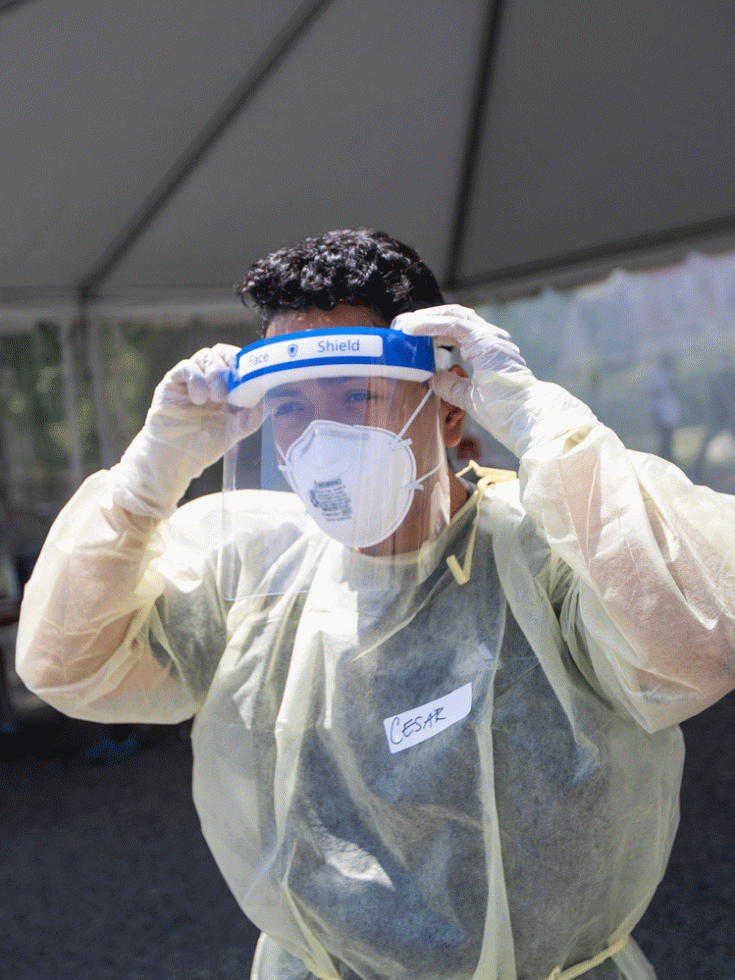PROVIDENCE, R.I. [Brown University] — In March 2020, Cesar Orduña was one of many students across the nation whose future suddenly became less certain as the spread of novel coronavirus ushered much of the U.S. into social isolation.
On campus at Brown, where Orduña is biology concentrator, many operations went remote, temporarily halting plans he was co-leading to establish a Brown-RISD Catholic center on College Hill, pausing his in-person student mentorship efforts, and potentially unsettling his plans to graduate and process through the Van Wickle Gates in December 2020.
Then in May, amid the chaos and uncertainty, the senior and aspiring doctor found a new purpose: administering free COVID-19 tests to Rhode Island’s uninsured and underserved.
“Over finals period, I got a text message from a friend who had been a longtime volunteer at the Rhode Island Free Clinic,” Orduña said. “She told me they were looking for someone to coordinate a COVID testing site. I reached out to the practice manager at the clinic, Luz Rodrigues, and we had a couple of conversations — the next week, I was at the clinic and helping out with the testing site.”
Over the last three months, Orduña has spent five full days a week serving as coordinator for the clinic’s COVID-19 test site, located in a parking lot beside the clinic building on the south side of Providence. The site opened in May to deliver urgently needed tests and care to vulnerable Rhode Islanders who are uninsured and have no primary care provider, according to Marie Ghazal, chief executive officer. Like the clinic itself, the test site relies entirely on philanthropy and volunteers; more than 700 community members help out every year.
On a typical workday, Orduña arrives 3 hours before the site opens, preparing medical supplies and personal protective equipment for his colleagues, organizing patients’ paperwork, arranging the test kits and briefing test site volunteers on the day ahead. He oversees testing for about 50 uninsured patients a day, many of whom work on the front lines as custodians and grocery store baggers, come from Central American and Caribbean countries, live in multigenerational houses and earn low wages. And at the end of the day, he reviews the patient paperwork and ensures test samples are sent to a nearby lab.
So far, Orduña and his team have successfully tested more than 1,300 uninsured, low-income individuals from the Providence area.
“I’ve always wanted to help the underserved — people without insurance, people who speak Spanish,” Orduña said. “Working at the clinic and seeing how much these communities have been impacted by the virus, seeing those inequalities and disparities, has only reinforced my belief that this is important work.”
Clinic leaders said they have been impressed by Orduña’s work.
“Under Cesar’s leadership, the clinic has increased access through our COVID-19 hotline, timely appointments, tests and results, and vital education, all delivered in a professional and culturally attuned manner,” Ghazal said.
